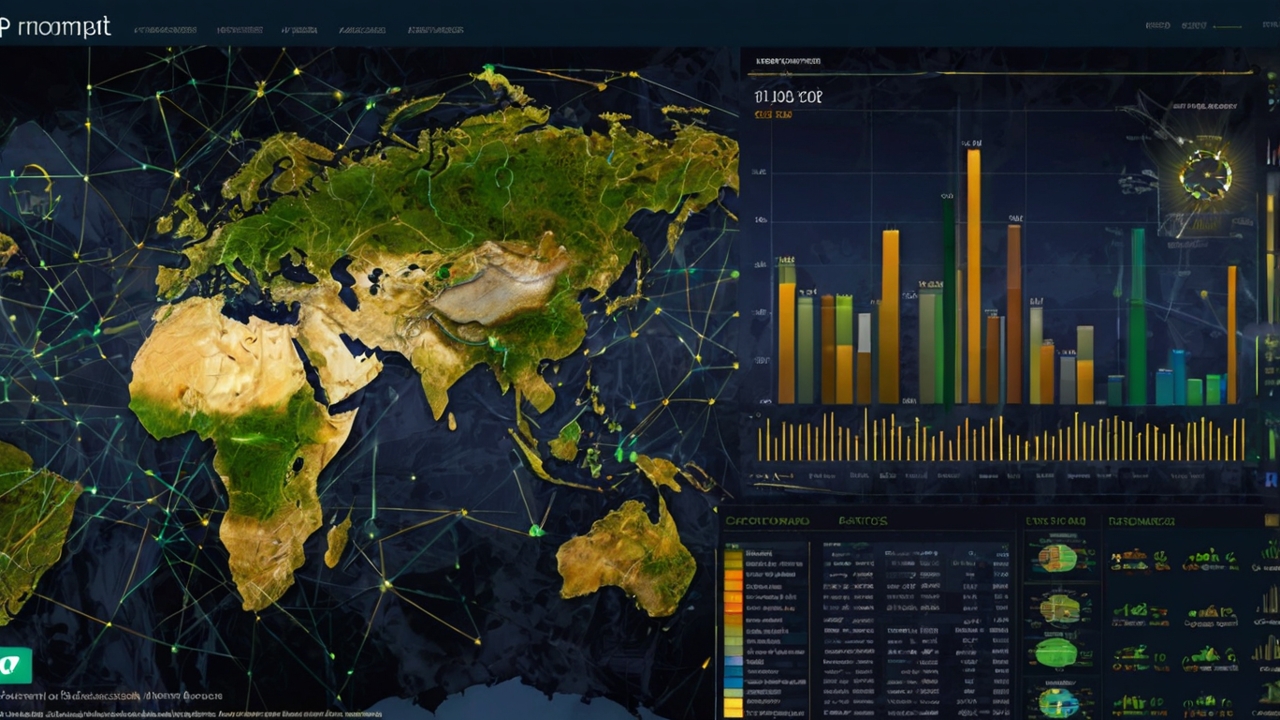Real Estate Investment in the Gulf: An Overview
Real estate investment in the Gulf Cooperation Council (GCC) countries has long been a preferred option for investors, both local and foreign. This is due to several factors, including relative political and economic stability, high income levels, steady population growth, and the ambitious visions of governments to diversify income sources away from oil, driving massive investments in infrastructure and major real estate projects.
Factors Influencing the Gulf Real Estate Market
Real estate markets in the Gulf countries are influenced by several key factors:
- Oil Prices: As the primary source of income in most Gulf countries, oil prices have a direct impact on economic growth and, consequently, on real estate demand.
- Government Policies: Government policies play a crucial role in regulating the real estate market, encouraging investment, and providing financing.
- Population Growth and Immigration: Population growth, especially through immigration, leads to increased demand for housing, offices, and commercial spaces.
- Interest Rates and Inflation: Interest rates affect the cost of real estate financing, while inflation affects the purchasing power of consumers.
Promising Real Estate Investment Opportunities in the Gulf
Investment opportunities in the Gulf real estate sector are diverse and include:
1. Luxury Residential Properties
The luxury residential real estate market is experiencing increasing demand from high-income individuals, whether citizens, residents, or foreign investors. Luxury projects focus on providing high-quality facilities and services, prime locations, and unique architectural designs.
2. Commercial and Office Properties
With economic growth and business expansion, demand for modern commercial and office spaces is increasing. Investment opportunities in this sector include building and leasing offices, shops, and commercial centers.
3. Industrial and Logistics Properties
With a focus on economic diversification and promoting non-oil industries, demand for industrial and logistics properties, such as warehouses, factories, and logistics centers, is increasing.
4. Tourism and Hospitality
Tourism is experiencing significant growth in the Gulf countries, creating investment opportunities in hotels, resorts, hotel apartments, and recreational facilities.
5. Infrastructure Projects
Gulf governments are investing heavily in infrastructure projects, such as airports, ports, roads, and railways, creating investment opportunities for real estate surrounding these projects.
Challenges Facing Real Estate Investment in the Gulf
Despite the promising opportunities, real estate investment in the Gulf countries faces some challenges:
- Economic Fluctuations: Real estate markets are affected by global and regional economic fluctuations, especially oil prices.
- Political Risks: Despite relative stability, regional political risks can affect investor confidence.
- Legislation and Regulations: Real estate legislation and regulations can be complex and vary from country to country, requiring careful study before investing.
- Competition: The real estate market is highly competitive among developers and investors, requiring the provision of differentiated products and services.
- Financing: Obtaining real estate financing can sometimes be difficult, especially for foreign investors.
Strategies to Maximize Long-Term Returns
To achieve long-term returns from real estate investment in the Gulf, investors should follow specific strategies:
- Conduct a Comprehensive Feasibility Study: Before investing, conduct a comprehensive feasibility study to assess potential risks and returns.
- Choose the Right Location: Location is one of the most important factors affecting property value.
- Diversification: Diversify real estate investments across different types of properties and geographic locations.
- Risk Management: Develop a plan to manage potential risks, such as economic fluctuations and political risks.
- Consult Experts: Consult experts in real estate, law, and finance to provide advice and support.
Successful Examples of Real Estate Investment in the Gulf
There are many successful examples of real estate investment in the Gulf countries. For example, King Abdullah Economic City in Saudi Arabia, The Pearl-Qatar project, and Burj Khalifa in Dubai are all projects that have generated significant returns for investors.
The Role of Technology in Developing the Gulf Real Estate Sector
Technology plays an increasingly important role in developing the Gulf real estate sector. Technologies used include:
- Artificial Intelligence: AI is used to analyze data, predict trends, and identify investment opportunities.
- Blockchain: Blockchain is used to record real estate transactions securely and transparently.
- Virtual Reality and Augmented Reality: These technologies are used to display properties virtually and provide an interactive experience for buyers.
- Internet of Things: IoT is used to manage properties intelligently and efficiently.
Future Trends in the Gulf Real Estate Market
The Gulf real estate market is expected to witness several future trends:
- Focus on Sustainability: There will be an increased focus on building sustainable and environmentally friendly properties.
- Digital Transformation: The digital transformation in the real estate sector will continue, with the use of more modern technologies.
- Increased Foreign Investment: Gulf countries are expected to attract more foreign investment in the real estate sector.
- Growth in Secondary Cities: Growth in secondary cities will increase, with a focus on providing job opportunities and affordable housing.
Tips for New Investors in the Gulf Real Estate Market
Here are some tips for new investors in the Gulf real estate market:
- Start Small: Start with small investments and learn from your experience.
- Do Your Research: Conduct thorough research before investing.
- Consult Experts: Consult experts in real estate, law, and finance.
- Be Patient: Real estate investment is a long-term investment.
Conclusion
Real estate investment in the Gulf countries remains a promising opportunity to achieve long-term returns, but it requires a deep understanding of the market and potential risks. By following specific strategies and consulting experts, investors can achieve success in this dynamic market.




